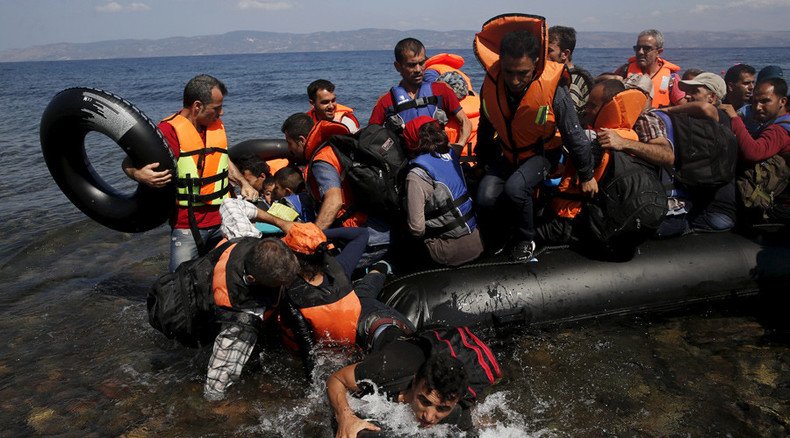‘Show some humanity!’ Amnesty attacks govt over migrant crisis response

Human rights experts have called on the government to stop using “inflammatory language” to describe vulnerable migrants and “show some basic humanity” in helping refugees who have fled war-ravaged states.
The call was issued by Amnesty International on Thursday, following the release of Office of National Statistics (ONS) figures detailing asylum applications tendered to the British government in recent years.
As swathes of the Middle East and Africa remain mired in violent conflicts, wars and foreign military intervention, Amnesty demanded the government do more to help migrants at the center of the most serious refugee crisis the world has seen since 1948.
It's time the government showed some basic humanity to those fleeing war. Our response to ONS figures on asylum: http://t.co/N6bMSwj9Gd
— Amnesty UK (@AmnestyUK) August 27, 2015The ONS figures revealed the British government had received 25,771 applications for asylum in the year ending June 2015, and 23,515 applications in the year ending June 2014.
The largest number of applicants in 2015 stemmed from crisis-ridden Eritrea (3,568). However, applications from war-ravaged Syria (2,204) and Sudan (1,799) were also high.
Amnesty previously branded the British government’s efforts to help Syria’s refugees “pitiful.” Recent figures from European Union (EU) border agency Frontex show that people feeling war-torn Syria and Afghanistan make up the “the lion’s share” of those attempting to make their way into Europe.
Meanwhile, the ONS figures reveal that 66 percent of asylum applications from Eritrea were rejected during the second quarter of 2015. This marks a huge increase on the 14 percent refusal rate recorded in 2014.
Amnesty has raised concern that this higher refusal rate may be the result of the Home Office relying on flawed research from the Danish Immigration Service. The human rights group says the research has whitewashed the severity of human rights breaches in Eritrea.
Amnesty says thousands of political prisoners are held in Eritrean prisons where torture commonly occurs, while mandatory military conscription forces others to contend with “brutal, slave-like conditions.”
The human rights group also warns that independent media organizations, NGOs and unregistered religious groups are banned from operating in Eritrea, while freedom of expression is severely restricted.
More fences and security won't change the underlying reasons refugees are seeking our help http://t.co/Ax5hDbndJ7pic.twitter.com/qVhMbKCQ84
— Amnesty UK (@AmnestyUK) August 23, 2015Amnesty International UK’s refugee program director, Steve Symonds, accused the government of “throwing up barricades” and labeling vulnerable refugees with “inflammatory language” in its efforts to deal with the worsening refugee crisis.
“What any responsible government needs to do is allay public fears over migrants and refugees, put the numbers into perspective and show some basic humanity,” he said.
Symonds sharply criticized the government’s feeble attempts to deal with the crisis, arguing that Germany and Sweden are doing far more to assist vulnerable refugees.
“We need to see the creation of safe and legal routes for those trying to enter Europe so they don’t have to risk drowning in the Mediterranean, getting tear-gassed at eastern European borders or being crushed under [trucks] at Calais,” he said.
Earlier this week, Britain’s Migrants Rights Network demanded the British government stop criminalizing vulnerable refugees.
However, the Conservative government continues to claim it is taking necessary action to control the flow of migrants attempting to enter Britain. Following the release of the ONS figures on Thursday, the government said the statistics should be a “wake-up call for the EU."
LISTEN MORE:












